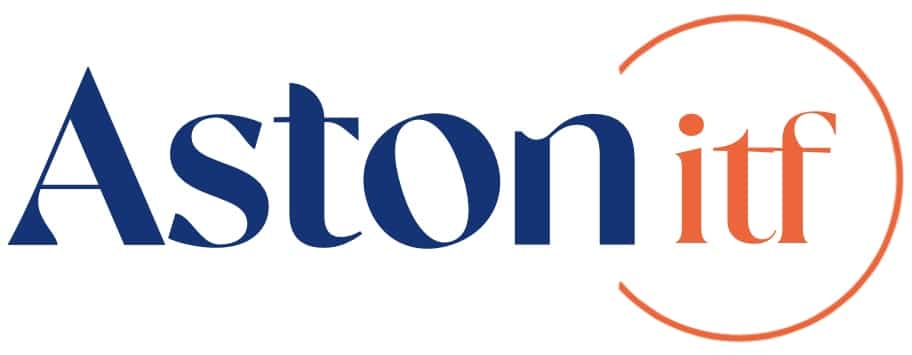This is how software for dunning and collection of receivables came into being. These platforms are primarily for small claims and are reserved for SMEs and VSEs that do not master the mechanics of debt collection. However, the collection software developed for the digital credit manager by Aston iTF allows to support the collection managers of companies of any size (PRO, VSE, SME, large groups).
Aston iTF recovery software interviewed by Le Nouvel Économiste :
“Thanks to our software and artificial intelligence, our solution allows a company to benefit from the necessary business tables in real time, to analyze the customer risk thanks to a scoring of the payment behavior of its customers, and to automate its collection strategy. The objective of the platform is to bring in more cash, faster and more efficiently”, explains its sales and marketing director.
Full text of the article:
While the “Art of War”, attributed to the strategist Sun Tzu, is useful in many situations, it will prove inadequate in the field of debt collection. Because here, the art of diplomacy prevails in order to be able to maintain good commercial relations with the debtor, who may be a long-standing partner, in addition to recovering his money. Prudence, therefore, and anticipation, especially in the research of solvency of future customers. Of course, an iron fist covered by a velvet glove will always prevail at some point to get paid and to reinforce its credibility in the market.
by Nicolas Monier
Context
Despite the undeniable benefits of digital technology in the debt collection sector, there are still a few imponderables that it is a good idea to try to control as much as possible. First of all, the debtor’s solvency must be checked beforehand. “The debtor’s solvency is an essential element in defining the collection strategy to be implemented,” notes Nathalie Paris. And the new Director of Litigation at Coface France, a credit insurance company, continuedAs soon as a collection file arrives, we start by analyzing all the financial and commercial information we have on the debtor. And if our collection efforts do not allow us to make direct contact with the business owner, we ask the information teams on site to conduct additional research.
Strategy
A strategy that helps limit customer risk upstream, and at the same time prevents late payments. And the company’s regular business partner will see his customer file updated in real time. For Isabelle Dyvrande, credit management consultant at the CNFCE (Centre national de la formation – Conseil en entreprise), “in the event of late payment, it is necessary to rely on the sales representative so as not to lose a trust that has become permanent. You should not hesitate to set up a payment plan with the debtor, as it may be wise to continue to manage customer relations with this loyal partner”. This research of permanent or punctual solvency is always necessary. “There is no need to spend a lot of money on a litigation process if the debtor company is, for example, moribund or on the verge of insolvency. In the same way, the knowledge of the solvency of one’s client allows one to negotiate a payment schedule with full knowledge of the facts”, notes Kérine Tran, legal director of the Arc firm.
Time is running out
Of course, in addition to the search for solvency, responsiveness must always be a priority. Here again, upstream and amicable solutions allow us to maintain good relations with regular customers. “The faster the intervention, the easier it will be to find solutions and therefore the higher the chances of recovery”, explains Arnaud Roger, Director of Debt Collection at Euler Hermes France, a company specialized in credit insurance. Moreover, for Thierry Gingembre, president of the ANCR (National Union of debt collection and commercial information firms), the statistics speak for themselvesOn average, a debt that has been outstanding for less than two months is recovered in 85of cases. For a debt that has been outstanding for more than one year, the percentage drops below 30%! The proverb ‘unlike good wine, unpaid debts do not age well’, which is well known in the collection and commercial information sector, illustrates this obligation of reactivity.
“The faster the intervention, the easier the solutions will be to find and therefore the higher the chances of recovery.”
It is therefore understandable that claims should not be forgotten. For some legal departments, it is even recommended to act before the invoice deadline to identify possible disputes, deal with them and thus optimize payments on time. “An amicable collection initiated early on often makes it possible to avoid legal proceedings. Reactivity in the reminders is also a guarantee of rigor and good management of the company. In the event of a dispute, an immediate treatment allows to consolidate the relationship of trust”, analyses Kérine Tran. Receivables do not age well for several reasonsThe risk of prescription, for example in the road transport sector. Or the loss of information on invoice receipts, the risk of insolvency, the difficulty of tracking, etc.,” continues the legal director.
Collective procedure, the protocol
If the debtor is in collective proceedings (safeguard, recovery or judicial liquidation), the collection procedures are very precisely regulated. In France, for example, the claim must be declared to the commercial court within two months of the publication of the proceedings in the Bodacc (Bulletin officiel des annonces civiles et commerciales). The creditor must therefore adopt a very strict protocol as soon as the collective procedure is opened, in order to put all the chances on his side to recover all or part of his claim. And reduce its losses as much as possible. “The first thing to do is to declare your claim to the judicial representative or the liquidator.
“The first thing to do is to declare your claim to the judicial representative or the liquidator.
Although the debtor is supposed to list his or her own debts, it is recommended to file directly his or her claims, especially those of a large amount,” explains Kérine Tran. And the latter underlines some crucial pointsIn the case of a successively executed contract, it is important to give notice to the administrator to decide on the continuation of the agreement. Otherwise, the latter could refuse payment of invoices subsequent to the collective procedure. In the case of a sale contract with a reservation of title clause [retour de la marchandise si elle n’est pas payée dans les délais], it is essential to claim the property in the hands of the administrator.
Beware of contractual clauses
Of course, the retention of title clause must be included in the seller’s general conditions. Thus, the latter retains full ownership of the goods sold until full payment is received. “This clause allows the recovery of the transferred equipment still stored after the opening of the insolvency proceedings. It also allows to recover the payment from a possible sub-purchaser”, notes Arnaud Roger. A retention of title clause, as we can see, is mentioned by all the collection firms that stipulate its imperious necessity. “Recovery will then depend on the amount of assets still available. In this case, and if the creditor has provided for a retention of title clause in his contractual conditions, claims can be filed. This allows us, when possible, to recover the goods delivered by our client so that he can resell them to a third party”, explains Nathalie Paris.
“The retention of title clause allows for the recovery of the assigned equipment still stored after the opening of the collective proceedings”
Except in the case of collective proceedings, amicable collection remains the fastest and least expensive solution. We must remain pragmaticDiplomacy and maintenance of the customer relationship with the debtor must prevail.
Factoring, to be used sparingly
The technique may seem attractive. For a company, the possibility of obtaining financing by transferring its receivables to a financial company, the factor, which takes charge of them for a commission. For Isabelle Dyvrande, credit management consultant at the CNFCE (Centre national de la formation – Conseil en entreprise), “it is a way for the company to concentrate on its know-how and to save time without having to do internal collection. Factoring also has another advantage, it allows to collect a lot of information about the debtor”. On the other hand, in the event of a problem, the factor will not be able to settle the customer dispute.
In other words, for collection specialists, this device should be used sparingly and carefully. “It is advisable that the company continues to manage its accounts receivable to control incoming and outgoing financial flows. Moreover, the costs of this service must be controlled because factoring can be very expensive, and can even absorb the company’s margins”, explains Kérine Tran, legal director of the Arc firm. As you can see, although factoring provides immediate cash flow to the company, it does not come at a lower cost. “This technique, which allows you to outsource your collection, is mainly aimed at large accounts,” concludes Isabelle Dyvrande. For his part, Thierry Gingembre, president of the ANCR (National Union of Debt Collection and Commercial Information Firms), believes that “without it being compulsory, factoring can be accompanied by insurance and collection services that will be more costly and more restrictive than simply using a specialist in amicable collection”
Online collection, a time-saver for small and medium-sized businesses
Digital, which abhors a vacuum, could not let such an opportunity pass. Numerous solutions for collection reminder software have been developed. These measures are primarily intended for small claims and are reserved for SMEs and VSEs that do not master the mechanics of debt collection. Thus, the ASTON iTF dunning and collection software platform for credit managers helps companies’ collection managers. “Thanks to artificial intelligence, our solution allows a company to benefit in real time from the necessary business tables, to analyze the customer risk thanks to a scoring of the payment behavior of its customers, and to automate its collection strategy. The objective of the collection software platform is to bring in more cash, faster and more efficiently”, explains its sales and marketing director.
For its part, the clients of the Recolia group, which specializes in customer risk, can manage all their disputes via a secure area. They can entrust a file, view its progress and exchange with a dedicated manager. “Via our website creances.pro, the client visualizes our collection solution, creates his space 100The company has a secure, digitalized system for handling its unpaid files. Our client can therefore follow his file online 24hours/24″, notes Antoine Beauvois, manager of the Recolia group. And the latter adds, cautiouslyOur solutions are aimed at companies, craftsmen and self-employed workers only. However, we recommend that you carry out an internal reminder phase with a reminder letter before entrusting us with the unpaid debt. This internal dunning phase ensures continuity in the collection process and allows us to gradually approach the debtor”.
Synthesis
In 2017, no less than 56 bnE of receivables remained unpaid.
More than one out of four insolvency proceedings is related to problems of unpaid and late payments.
600 E is the amount of the loss, variable resulting from a delay in payment of a debt contracted between professionals.
15000 business failures (out of 63000) are due to payment defaults.
Source: ANCR (National Union of Debt Collection and Business Intelligence Firms), 2018 study
Source:
The New Economist










